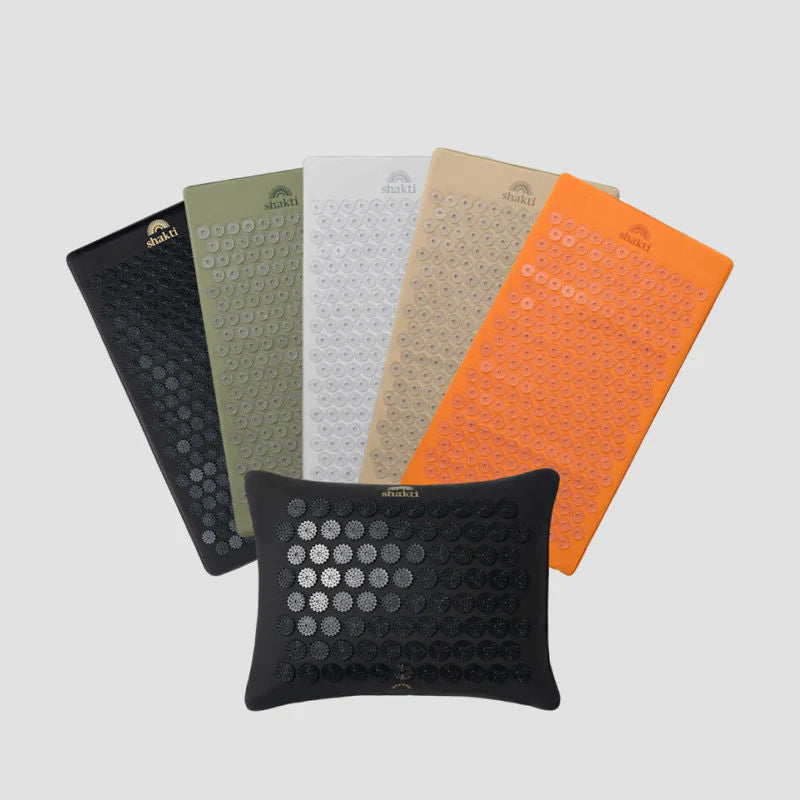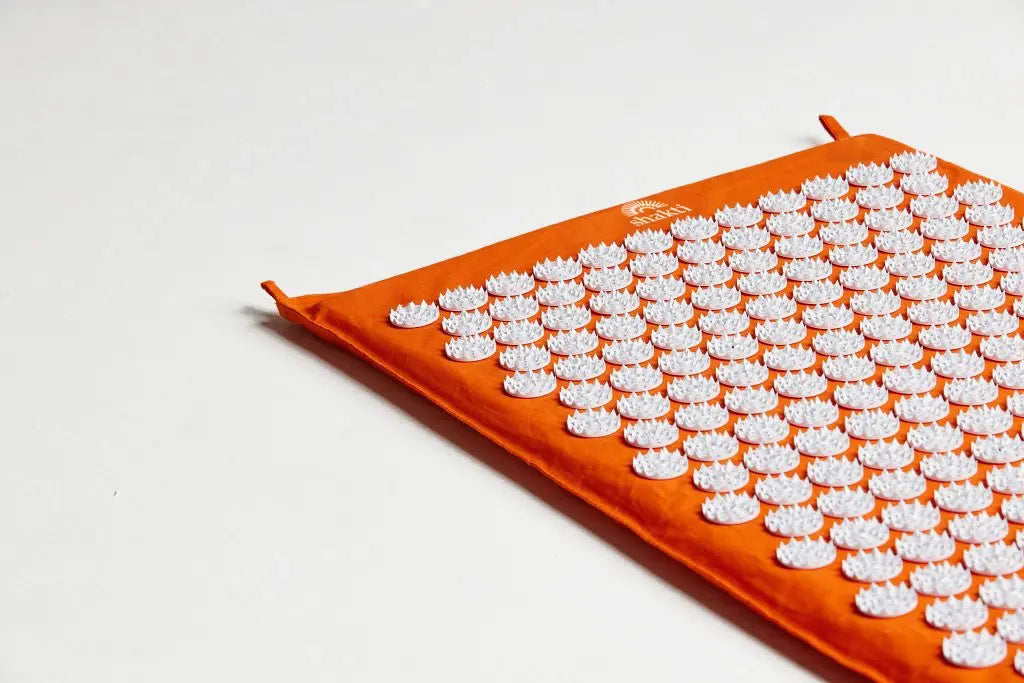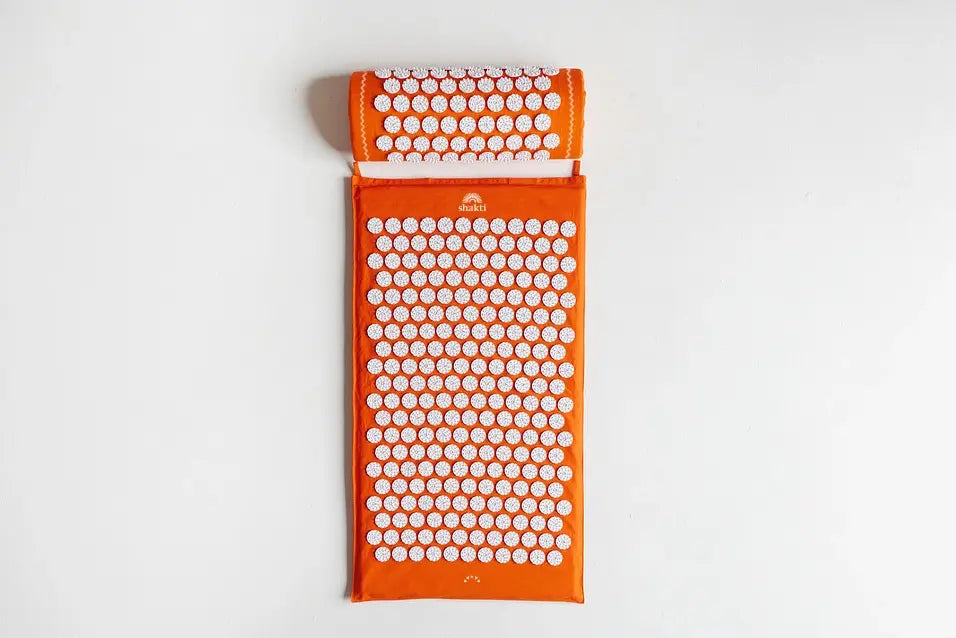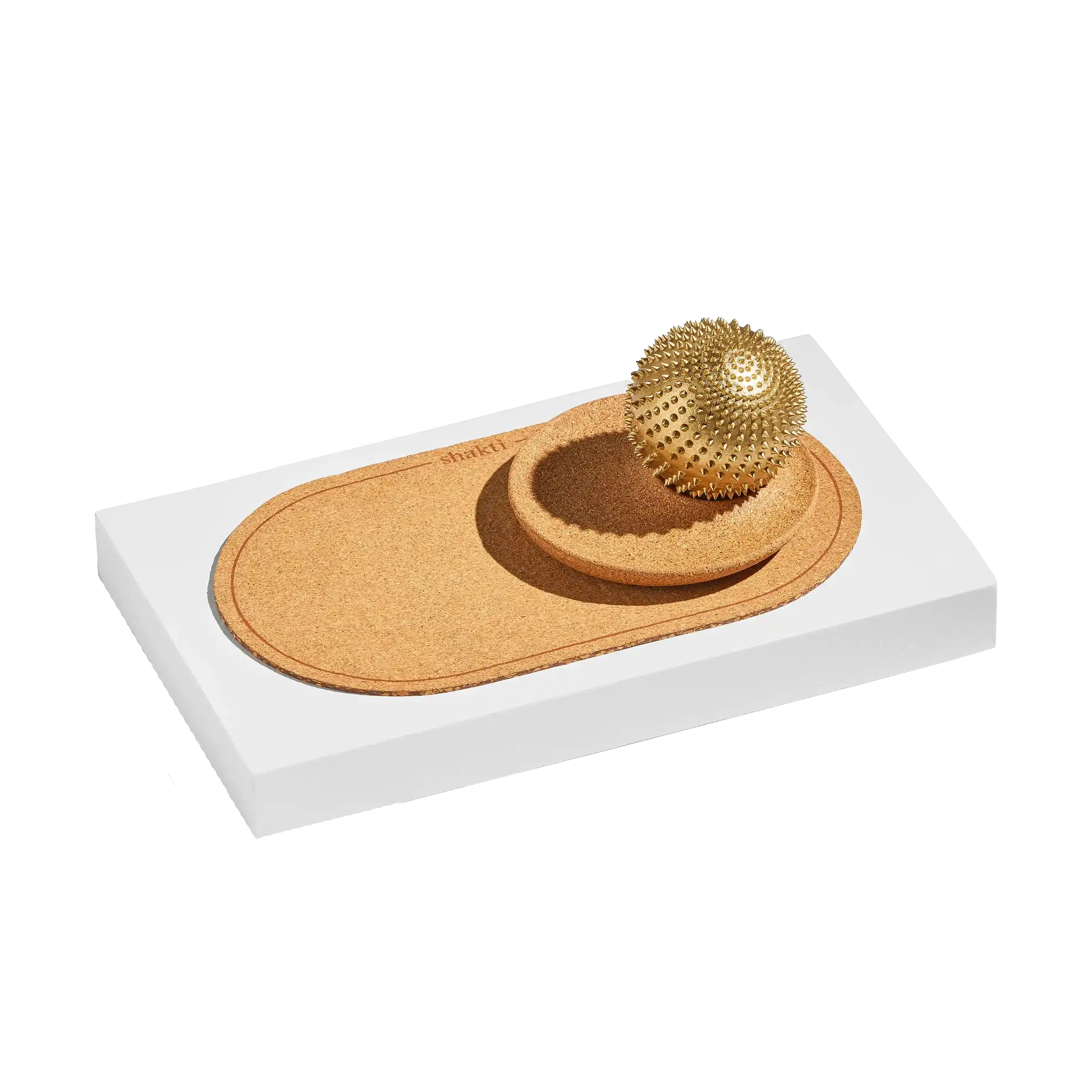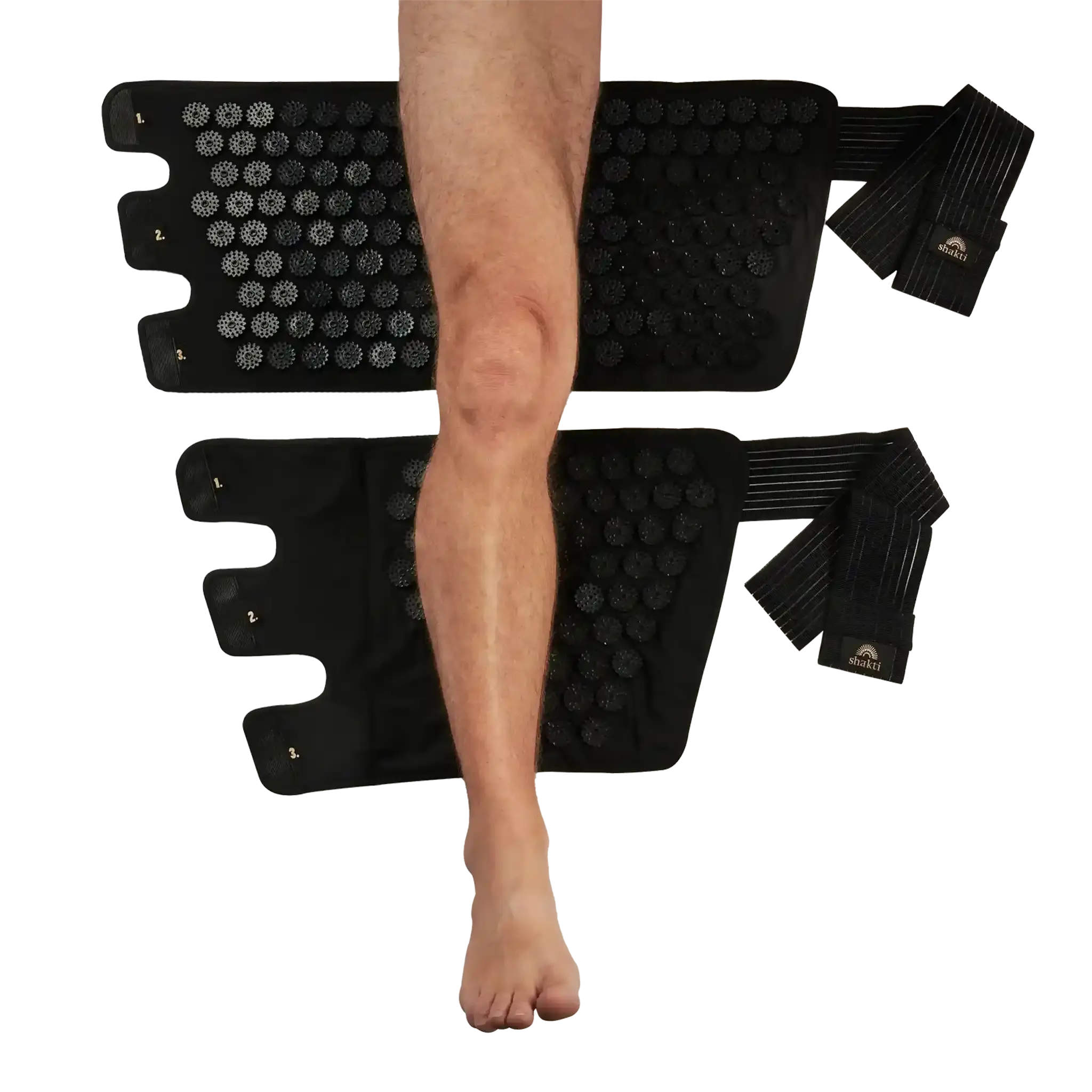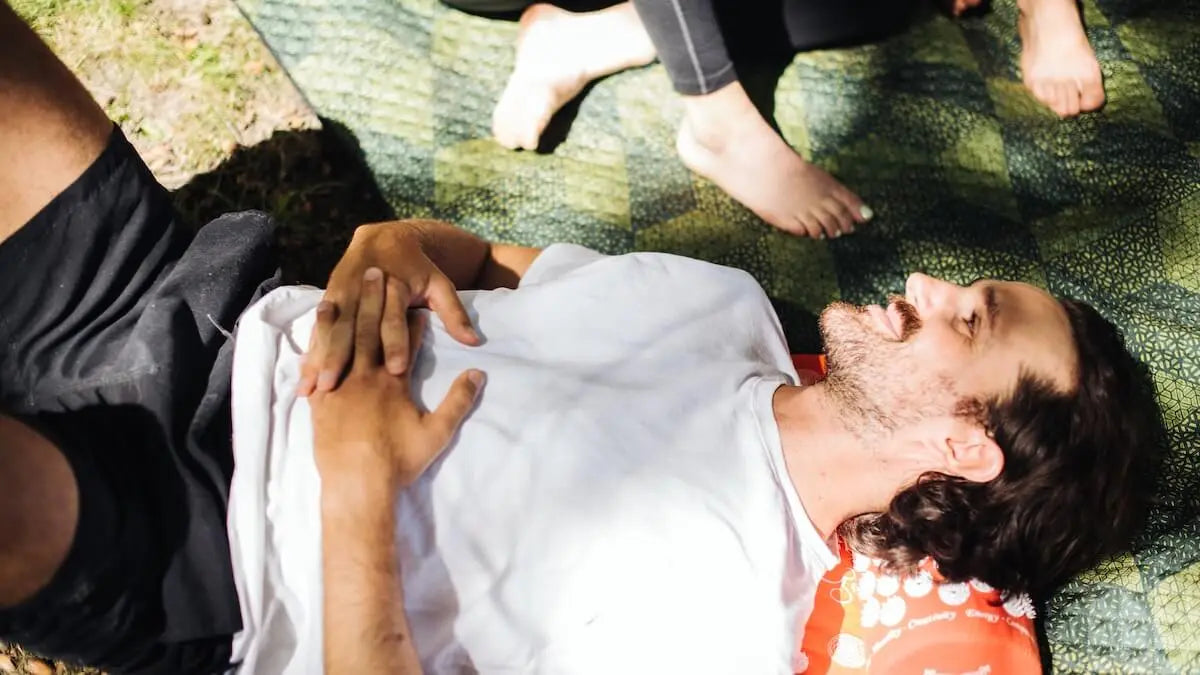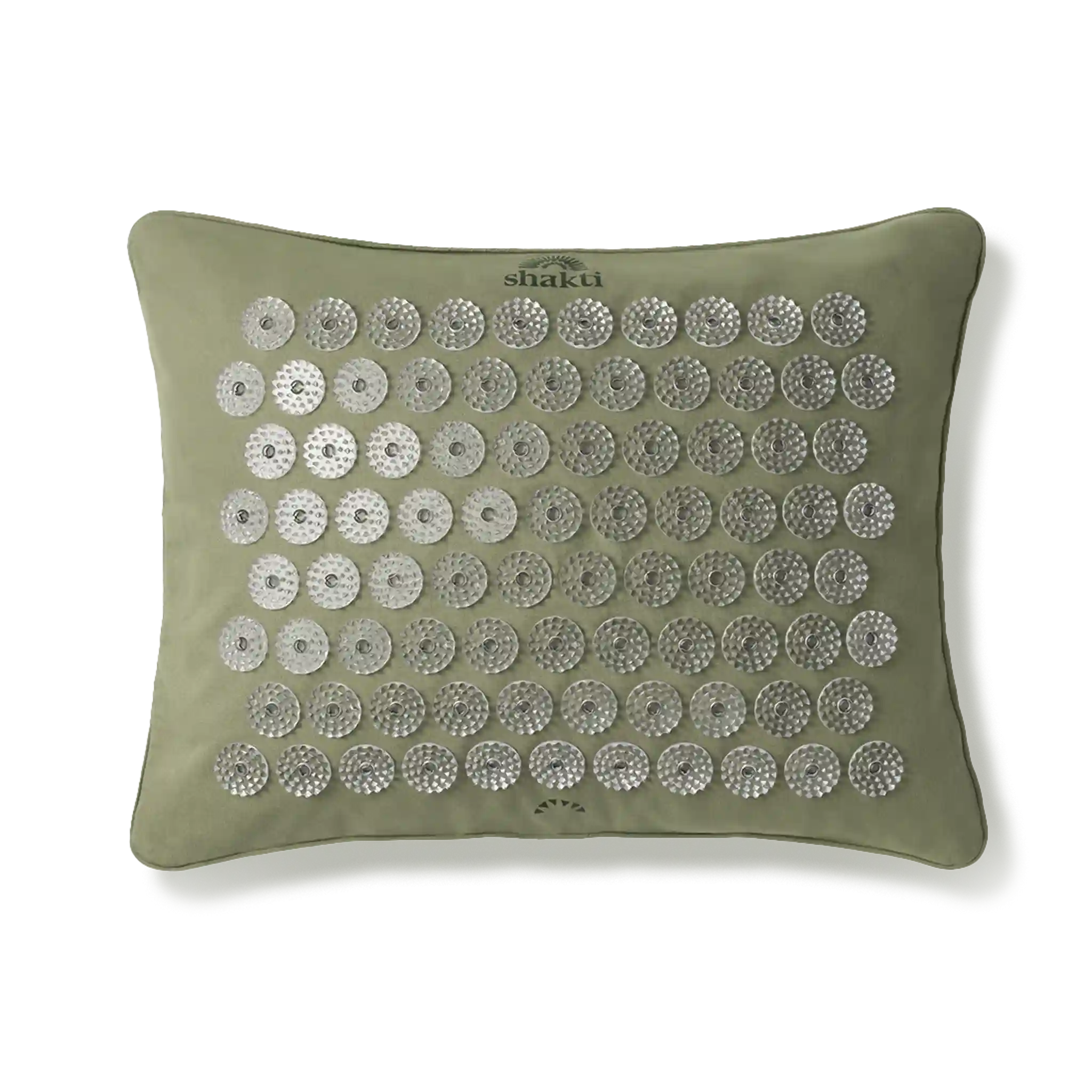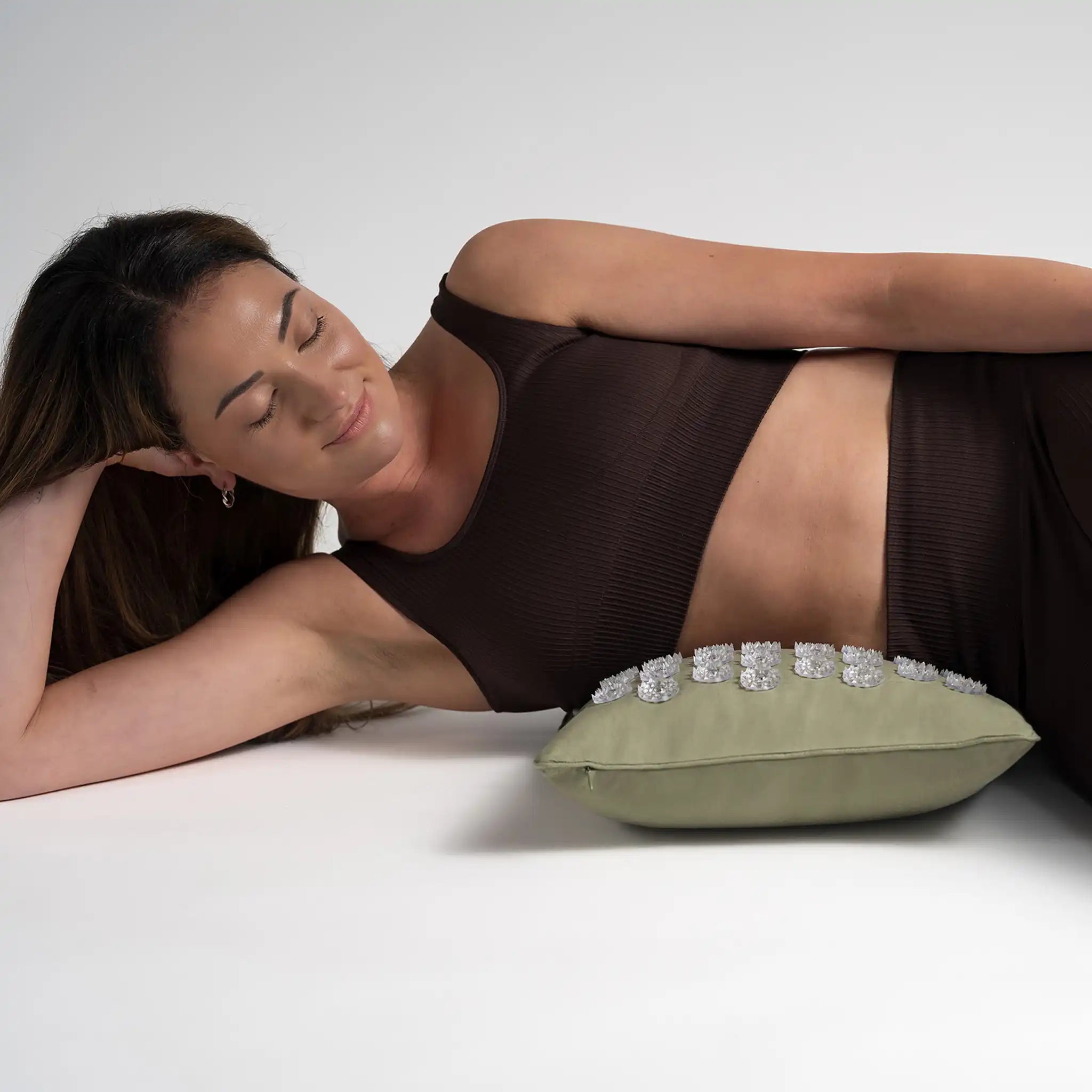Is your neck stiff? It's quite common. With so many of us spending most of the day staring at our computers or smartphones, it's no wonder we have neck pain. If you've ever struggled with a stiff neck, then you know how painful and uncomfortable it can be and how much it can limit you in your daily activities. The symptoms can even prevent you from sleeping properly. But what to do about a stiff neck?
In most cases, neck pain is temporary, but without the right treatment it can become chronic. To make sure that doesn't happen to you, we've compiled all the important information in this blog article that can help you get rid of your neck pain once and for all.
Content
1. get to know the neck and its pain points
3. what helps against a stiff neck?
4. what to do if you have a stiff neck - exercises to relieve the pain
5. tips for preventing neck pain
6 A stiff neck - how long does it last?
Getting to know the neck and its pain points
Before we tell you what you can do about stiff neck, we will go into the neck itself: In humans, the neck is the part of the body that connects the head to the shoulders and chest. Basically, each person has more than 20 neck muscles that extend from the base of the skull and jaw down to the shoulder blades and collarbone. These muscles support and stabilize your head, neck and the upper part of your spine. They allow you to move your head in different directions, rotate it, and chew, swallow, and breathe without restriction.
Important parts of the body that run through the neck are:
- the seven cervical vertebrae and the spinal cord enclosed therein
- the larynx and vocal cords
- veins and arteries essential for blood flow
- a part of the esophagus
- Complex muscles, such as the hyoid, trapezius and other stabilizing neck muscles.
Like all other skeletal muscles in the body, the neck muscles also contain many tiny, elastic fibers that enable the muscles to contract. These are held together by sheaths of tough connective tissue. It is precisely these muscle fibers that can be damaged in the event of severe strains, spasms or whiplash injuries, causing the pain you have been struggling with for so long.
Stiff neck - cause
As with shoulder pain, a stiff neck usually occurs when the muscles weaken over time due to poor posture or strain. If your neck muscles become weak and you try to turn your head, the joint no longer moves smoothly because it is no longer in place.
Often, the joint gets caught on something, causing a muscle to be pulled. Then you may immediately feel pain and your body tenses up as a result. The body wants to prevent you from hurting yourself even more - a stiff neck is the result.
Especially if you look at your computer or cell phone screen all day or stay in a stooped position, the muscles around the neck region can get tired and overstretched. Driving for long periods of time and improper posture while exercising can also have this effect. While such short-term bad postures don't necessarily lead directly to tension, it's the positions you adopt on a daily basis that are crucial to your pain.
If you want to do something about stiff neck permanently, at best find out the cause first.
So, in summary, the causes of neck pain are as follows:
- Unfavorable sleeping positions
- Bad posture at the desk, at work, while driving a car
- Constantly bent neck, as when reading or from spending too much time on the cell phone
- pinched nerve
- Overstretching and incorrect execution of exercises during sport
- an injury, such as whiplash after an accident
- Stress, muscle tension
A stiff neck - symptoms and common complaints
A stiff neck is typically characterized by pain and difficulty moving. This can also be accompanied by headaches, neck, shoulder and/or arm pain. If you may have to turn your whole body to look to the side or over your shoulder instead of moving your painful neck, this is called a stiff neck.
A stiff neck can also be diagnosed by muscle spasms or pain in the upper shoulder, numbness in the arm or hand, or stiffness or inability to move the head in different directions. Furthermore, in some people even swelling or bruising in the neck area can indicate that neck tension is present.
What helps against a stiff neck?
A stiff neck, what to do? The causes of neck pain due to strains and sprains vary. If you wake up with a "pop" in your neck, it is probably due to strong muscle contractions caused by a muscle strain. A sprain, on the other hand, occurs in the ligaments, the tough tissue that connects the bones together. No matter what it is, you can treat your neck pain at home with these tips:
Here's what you can do for a stiff neck: Apply heat or ice to the painful area
A common question that often arises with muscle strains in the neck is:"What helps a stiff neck - cold or heat?" Ice and heat can work together to help soothe a pulled or torn muscle fiber and give it time to heal. They can relieve pain in an overloaded part of the body, such as the neck, in good time.
For example, ice helps reduce inflammation and swelling by decreasing blood flow to the neck area. Heat does the opposite by stimulating blood flow.
Our tip: Use ice for the first 48 to 72 hours, then apply heat. Heat can be applied with warm showers, hot compresses or a heating pad, for example.
What to do if you have a stiff neck? Move regularly!
Exercise can also be very helpful if you need to treat a stiff neck. The best way to do this is yoga or certain stretches of the neck, which can be stretched a little by gently pulling and pushing. However, avoid jerky or painful activities. This will help to calm the symptoms and reduce inflammation.
If you want to relieve a stiff neck, it will also help if you integrate a few special exercises into your daily routine. You can find more about this below.
Consider a massage
If you want to do something against a stiff neck, then this may also be a small feel-good experience. Do something good for your body and let a partner gently massage the sore or aching spots. Communication is the key here. Let your partner try different techniques until they find one that feels good.
Of course, you can also ask a professional masseur for advice. He or she can often recommend the right massage technique and apply it directly if you are struggling with a stiff neck. What helps here against a stiff neck is to loosen the muscles through gentle and targeted movements.
Make sure you have the right mattress or pillow
Especially when sleeping, it is not uncommon to adopt incorrect positions and thus fatally stress the neck and neck. Mostly this happens because we choose the wrong mattress or the wrong pillow and we therefore assume the wrong position. Bed materials that are too soft or too hard cause us to slouch or lie too high, putting our neck in the wrong position and consequently causing us to have a stiff neck in the morning. So try to sleep on a mattress that adapts to your back, with a soft pillow or with a special neck pillow. This is something you can do against a recurrent stiff neck.
Reach for helpful acupressure methods
Fortunately, what to do for a stiff neck is not limited to the above methods. Acupressure is a healing method that releases blockages in the body, thus restoring the flow of energy in the body. This can help relieve muscle tension and target the pain in your neck.
An acupressure mat can be used to relieve tension and can be used in many different ways. For use on the neck, you can roll it up and lie directly on it with the tense areas. The small spikes on the surface of the Shakti Mat promote your blood circulation and can help to gently loosen knotted muscles. Acupressure is just the thing for pain in the neck and shoulder area.
What to do when you have a stiff neck - exercises against the pain
Want to do something about your stiff neck? As we mentioned above, the key to treating a stiff neck is proper stretching and exercise. Stretching can help relieve pain and stiffness and also prevent it from coming back in the future. It's important that you do the exercises gently and slowly, taking care not to overstretch. It's better to take it slow, because a stiff neck after exercise, such as intense yoga, Pilates or weight training, is especially not something to be taken lightly. Sudden movements or overstretching can lead to further pain or injury.
Below you will find examples of helpful stretching exercises that you can try at your desk or at home to counteract a stiff neck:
- Repeatedly roll your shoulders back and down.
- Gently squeeze your shoulder blades together and repeat the exercise a few times.
- Roll your shoulders backwards and then forwards in a circular motion.
- Slowly turn your head from side to side.
- Place your hands on the back of your head as a kind of support and gently push your head back. Hold it there for 30 seconds.
- Slowly move your head from one shoulder to the other. Pull the opposite hand down as you do so.
Tips for the prevention of neck pain
What to do to prevent a stiff neck? Below you will find some ways to prevent neck pain associated with a stiff neck.
Optimize your sleeping position
If you wake up in the morning with pain in your neck and ask yourself "Where is the stiff neck coming from?", then it may be time to reconsider your sleeping position. If you sleep on your stomach a lot, for example, you may often spend hours turning your head in one direction or another. This can also affect your lower back because your stomach will sink into the bed if you are not given enough support from your mattress. It is therefore advisable to only sleep on your side or back and, if necessary, to support this sleeping position with additional Pillow . This way you won't have a stiff neck after sleeping.
Actively practice the correct posture
Paying active attention to your posture on a daily basis can help you to directly recognize and improve misalignments. Especially when you're sitting at a table or on your cell phone, you can consciously practice keeping your neck more upright. Even when walking and standing, any tensions that arise should be directly compensated for with better posture.
To prevent neck pain, keep any technical devices or books at eye level and sit upright. Also, avoid tilting your head down or to the side too much while sitting at the computer. A good, quality office chair can help.
Exercise regularly
Regular exercise is associated with numerous health benefits. Many of them can help prevent injuries and pain due to weak neck muscles or relieve stress-related tension.
It is therefore essential that you make time 3-5 days a week to go to the gym, do workouts at home or incorporate yoga and Pilates into your daily routine. This is an effective way to do something about your stiff neck.
Reduce stress consciously
Stress can cause the muscles in your neck, shoulders and back to tighten. You can relieve stress in a number of ways, including music, meditation, taking a vacation, or simply taking a break, grabbing a good book, and getting cozy on the couch. Even a short day trip or an activity you enjoy can be very helpful if you suffer from a stiff neck.
A stiff neck - how long does it last?
What to do about a stiff neck, you have already learned above. However, how long neck pain lasts depends on a number of factors. These include the type of injury that caused your neck pain. Was it a car accident, a sports injury, or a pulled muscle at work?
Most neck problems subside after just a few days. However, only if active work is done to treat them, such as conscious stretching, better posture or an ergonomic workplace.
If you've tried a few things yourself and the pain still hasn't gone away after a few weeks, it's probably time to see a doctor. This way you can find out if another problem is responsible for your tension and what you can do about it from a doctor's point of view.


